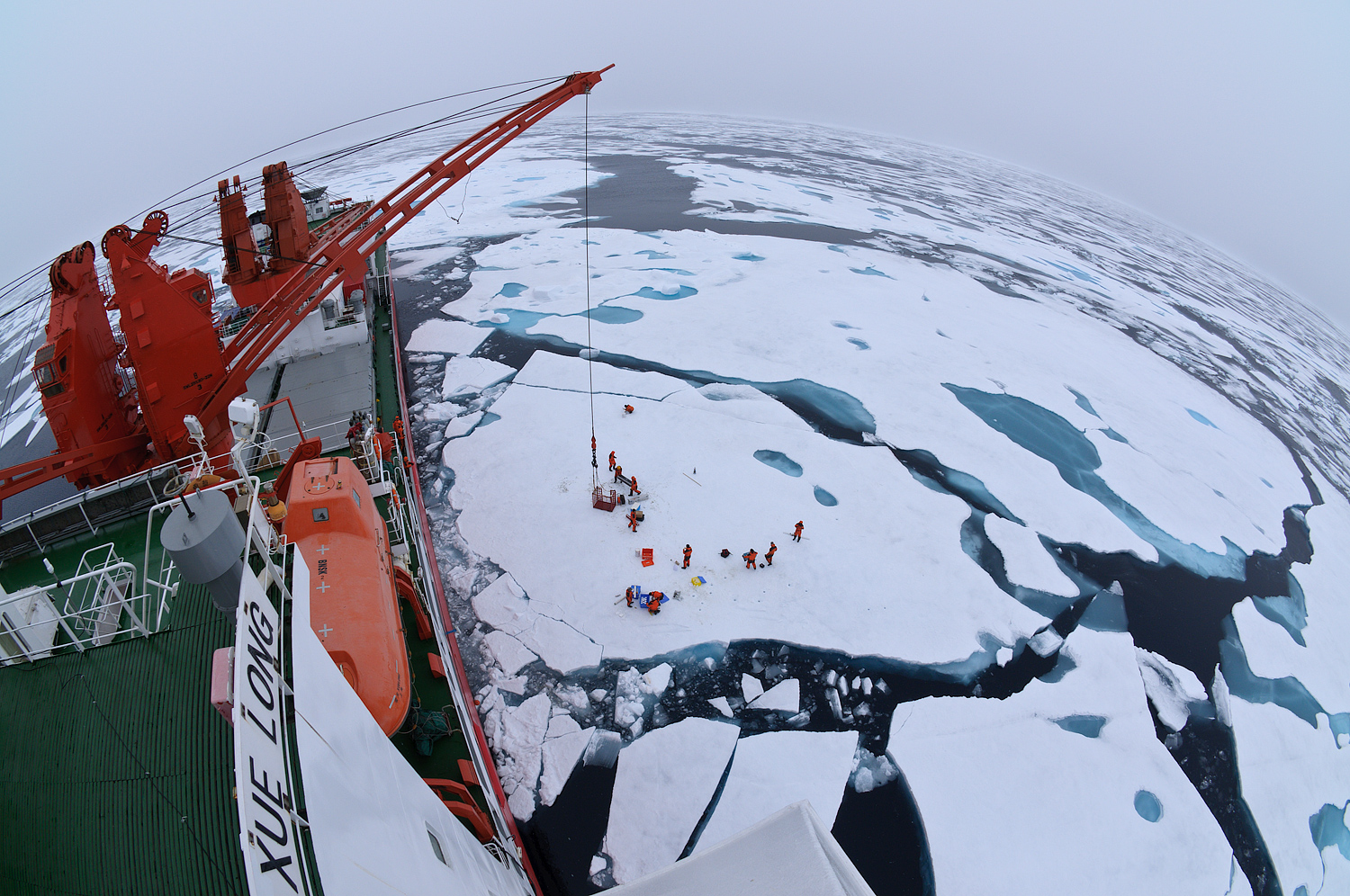
In a thinly veiled attempt to hype the “China threat,”
The United States Senate passed the 2020 National Defense Authorization Act, which includes a section directing the Department of Defense to commission a report on China’s “foreign direct investment” in the Arctic region and its impact on U.S. national security and geopolitical competition in the region.
Section 1260E of the act requires a breakdown of China’s investment in the Arctic region to include the following features:
First, the dissection will be encompassing, covering activities in construction, finance, energy, resource mining, fixed assets, telecommunications, shipbuilding and other sectors, along with direct and indirect investments by both state-owned enterprises and private entities.
Second, it covers circumpolar countries. The examination will go beyond the Arctic territories held by the U.S. and extend to Russia, Canada, Norway, Iceland and Greenland for a broad, systemic evaluation of the disclosure levels and effectiveness of the decision-making process, enforcement and the legal regulatory frameworks of foreign investments in the region.
Third, security risks have been elevated. On the assumption that China is concealing ulterior military motives behind its economic investments in the Arctic, the U.S. is tempted to evaluate China’s investments from political, military and economic angles, including their implications for strategic competition.
Basically, the U.S. seeks to establish a pattern of Chinese involvement in Arctic affairs to expand its own influence in the region.
Since President Donald Trump took office, the U.S. has shifted its focus to competition and economic development in the Arctic region, marking a major shift from the cooperative approach of the green-minded Obama administration. In essence, the shift in policy is intended to capture leadership, and even dominate, rule-making for the Arctic region. Otherwise, the long-term strategic rivals of the U.S., chiefly China and Russia, will fill the void and take the reins. This mindset was borne out in Secretary of State Mike Pompeo’s speech on Arctic affairs and in an array of documents, such as the United States Coast Guard Arctic Strategic Outlook, Military and Security Developments Involving the People’s Republic of China 2019, the Indo-Pacific Strategy Report and the 2019 DoD Arctic Strategy.
The NDAA 2020 bill orders the launch of an investigation into China’s Arctic investment, which is a concrete step forward based on the culmination of the documents mentioned above.
China is no stranger to special attention from the U.S. over its Arctic investments. Secretary Pompeo and former National Security Adviser John Bolton groundlessly accused China of engaging in “debt diplomacy” in the Arctic — that is, using business investments to advance its security interests. They have rallied U.S. allies to reject China’s “near-Arctic country” status and even to blatantly interfere in Chinese enterprises’ bidding for Arctic infrastructure projects.
In truth, U.S. attempts to smear competitors, along with its efforts to play up security risks in the region in the hope of invoking knee-jerk reactions from Arctic countries, have availed nothing thus far. If anything, such behavior is counterproductive.
The U.S. Defense Department seems to have an inherent disposition to discredit project bids from China and to contain China when vetting Chinese investments in the Arctic. This is manifest in two main ways: First, it may employ a whack-a-mole approach that targets individual projects one by one before turning to a blanket containment strategy. Second, it may endeavor to formulate an Arctic economic cooperation system and resort to setting up invisible barriers — ecological requirements, protection of aborigines’ rights or the principle of restricting rights and sharing responsibilities — as part of the effort to impose one-way disclosure obligations on other stakeholder countries and hinder their commercial activities in the region.
The Arctic is at a critical and historic juncture in its development as it faces multiple new challenges in governance. How things unfold will have an important bearing on the sustainable development of human society and on the oceanic ecosystem. Arctic and non-Arctic states must work in cooperation on the principle of mutual respect — as opposed to arrogance and prejudice — to jointly explore and share the opportunities presented by our times and to promote pragmatic cooperation and safeguard peace and tranquility in the region.
China, as a near-Arctic country, has been engaged in Arctic affairs on the basis of open cooperation for shared benefits. It has every right to participate in Arctic affairs as provided by international law, and it is by no means by virtue of the “generosity” of any Arctic country. China’s efforts to deepen economic cooperation with Arctic countries is not a devil in disguise but an opportunity for economic cooperation that matches the demands of Arctic countries with the industrial capacity of China. The Polar Silk Road has made headway, and the initiative has resonated with countries along the route.
One major country has been grossly interfering with Arctic economic cooperation through actions that are categorically at odds with aspirations for peace, stability, cooperation and development in the region. Cold War mentality and restrictive economic measures that characterize this line of thinking will only be dismissed by stakeholder countries.
